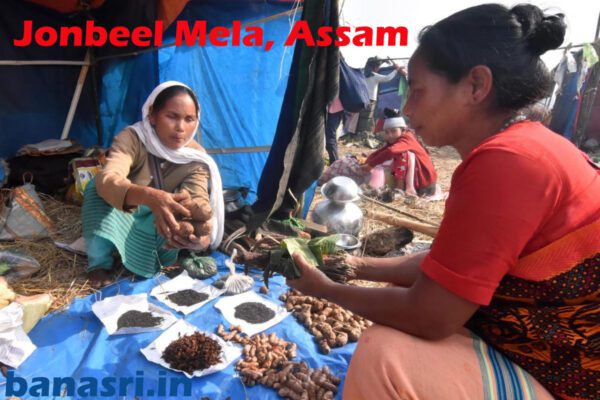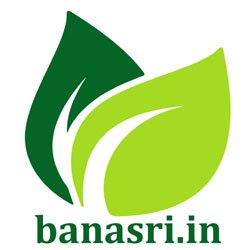
Jonbeel Mela, Assam: A Unique Festival of Barter and Cultural Exchange
Introduction
Jonbeel Mela is a unique and ancient festival celebrated in the state of Assam, India. Known for its traditional barter system, the festival offers a fascinating glimpse into the region’s rich cultural heritage and historical trade practices. This three-day event is a vibrant blend of social, cultural, and economic activities, drawing participants and visitors from various communities.
Timing of the Festival
- When: Jonbeel Mela is held annually in the month of January, coinciding with the Magh Bihu celebrations.
- Significance: The festival marks the harvest season and serves as a platform for different communities to engage in traditional trade and cultural exchange.
Locality of the Festival
- Where: The festival takes place at Jonbeel, near the town of Jagiroad, in the Morigaon district of Assam.
- Communities Involved: Various indigenous communities from Assam and neighboring states, including the Tiwa, Karbi, Khasi, and Jaintia tribes, actively participate in the festival.
Nature of the Festival
- Type: Jonbeel Mela is a socio-economic and cultural festival featuring traditional barter trade, cultural performances, and community gatherings.
- Essence: The festival promotes communal harmony, cultural exchange, and the preservation of traditional trade practices.
Highlights of the Jonbeel Mela
Barter System
- Traditional Barter Trade:
- Event: The festival is renowned for its unique barter system, where people exchange goods without using money.
- Significance: This ancient practice harks back to pre-monetary times, emphasizing self-sufficiency and mutual exchange.
- Specialty: Farmers, artisans, and traders bring their produce and handmade goods to trade for other essential items, creating a bustling market atmosphere.
- Items Traded:
- Goods: Items typically exchanged include rice, fish, vegetables, livestock, traditional crafts, and household items.
- Importance: The barter system strengthens community bonds and supports local economies.
- Specialty: The absence of currency in transactions makes the Jonbeel Mela a unique and authentic cultural experience.
Cultural Performances
- Traditional Dances and Music:
- Performances: Various ethnic communities showcase their cultural heritage through traditional dances, music, and folk performances.
- Significance: These performances highlight the cultural diversity and richness of Assam.
- Specialty: Dances such as the Tiwa dance, Bihu dance, and Karbi dance are major attractions, captivating audiences with their vibrant costumes and energetic movements.
- Ethnic Processions:
- Procession: Colorful processions featuring traditional attire, music, and dance are organized.
- Importance: These processions symbolize unity and cultural pride among the participating communities.
- Specialty: The participation of multiple ethnic groups in the processions showcases the region’s cultural mosaic.
Community Gatherings and Social Bonding
- Magh Bihu Celebrations:
- Event: The festival coincides with Magh Bihu, a harvest festival celebrated with feasting, bonfires, and cultural activities.
- Significance: Magh Bihu celebrations add to the festive spirit, fostering communal harmony and joy.
- Specialty: Traditional Assamese feasts, including pithas (rice cakes) and other delicacies, are prepared and shared among the community.
- Kings and Leaders Meeting:
- Event: The festival features a traditional meeting of local kings and tribal leaders known as “Gobha Raja.”
- Significance: This gathering is a symbol of regional governance and cooperation among different tribes.
- Specialty: The exchange of ideas and resolutions during the meeting reflects the democratic and collaborative spirit of the festival.
Market and Fair
- Stalls and Exhibitions:
- Exhibits: Numerous stalls are set up, offering a variety of goods including handicrafts, textiles, local cuisine, and agricultural products.
- Importance: These stalls promote local businesses and provide a platform for artisans and traders to showcase their products.
- Specialty: The fair-like atmosphere, with its array of stalls and activities, attracts visitors and tourists, enhancing the festival’s appeal.
- Games and Competitions:
- Activities: Traditional games and competitions are organized, adding to the entertainment and festive mood.
- Significance: These activities encourage community participation and highlight traditional sports and skills.
- Specialty: Events such as archery, wrestling, and traditional boat races draw large crowds and enthusiastic participants.
Specialty of Jonbeel Mela
- Cultural Significance: The festival is a celebration of Assam’s rich cultural heritage, showcasing traditional practices, dances, and crafts.
- Historical Aspect: The unique barter system of Jonbeel Mela offers a glimpse into ancient trade practices, emphasizing self-sufficiency and mutual support.
- Community Bonding: The festival fosters a strong sense of community and togetherness, as people from various tribes and regions come together to celebrate and trade.
- Tourist Attraction: Jonbeel Mela attracts tourists and visitors, providing them with an immersive experience of Assam’s cultural and economic traditions.
Conclusion
Jonbeel Mela of Assam is a unique and vibrant festival that blends ancient trade practices with rich cultural traditions. Held near the scenic Jonbeel area, the festival not only promotes communal harmony and cultural exchange but also preserves the age-old barter system, offering a fascinating experience for all who attend. Through its diverse activities and events, Jonbeel Mela serves as a testament to Assam’s cultural heritage and the enduring spirit of its people.

I’m really inspired along with your writing talents as well as with the layout for your blog.
Is this a paid topic or did you modify it your self?
Anyway stay up the excellent high quality writing, it’s
uncommon to peer a great weblog like this one nowadays.
Leonardo AI x Midjourney!
I’m extremely impressed together with your writing skills and
also with the format for your blog. Is that this a paid subject matter or
did you modify it yourself? Anyway keep up the nice quality writing, it’s rare to look a nice
weblog like this one nowadays. Leonardo AI x Midjourney!